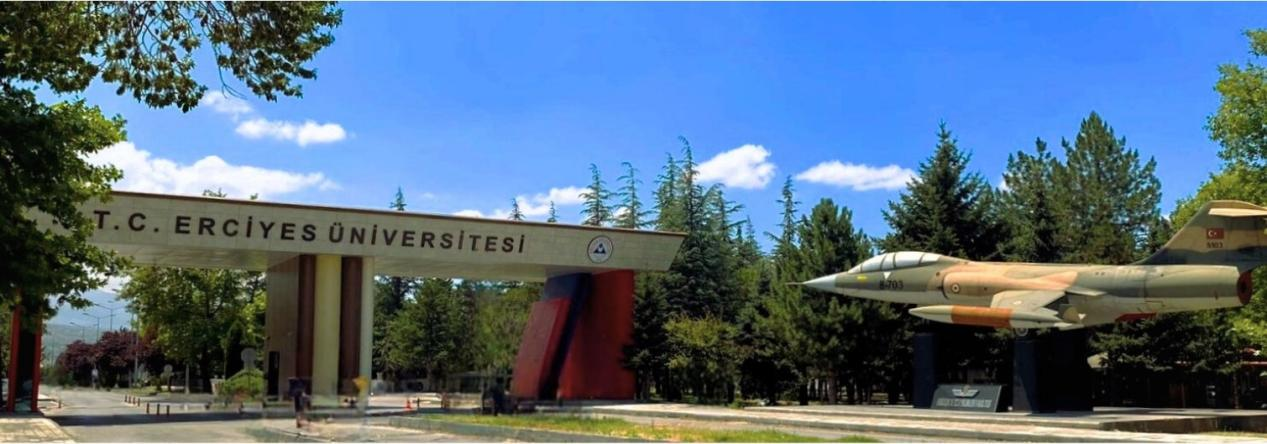Title:
Advances in Sustainable Aviation and Aerospace Vehicle Automation
Date:
November 14th, 2025 (UTC+3)
Organizer:
Department of Astronautical Engineering, Erciyes University
Symposium Chair:
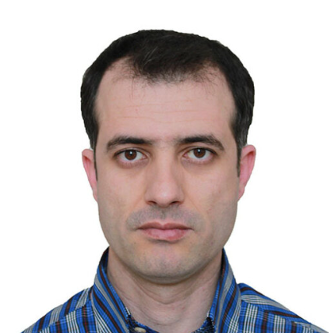
Dr. Harun Çelik
Personal Bio:
Dr. Harun Çelik is currently the Deputy Head of the Department of Astronautical Engineering and the Founding Head of the Autonomous and Intelligent Systems Laboratory at Erciyes University in Kayseri, Türkiye. His main research interests include flight dynamics and control of aerospace vehicles, autonomous and intelligent aerospace vehicles, visual servoing, and optimisation algorithms. His recent research has focused on developing of intelligent aerial vehicles, blockchain-aided flight management systems, and ornithopter design. He has published over 45 peer-reviewed scientific conference and journal papers, and has 3 patent filings. He has received various research acceptences in Türkiye, France, Hungary and Finland. He has presided 9 research projects funded by the Scientific and Technological Research Council of Türkiye, Turkish Aerospace Inc., and the Scientific Research Projects Unit of Erciyes University.
Committee Members:
Süreyya Sevinç Varol, Erciyes University, Turkey, sureyyavarol@erciyes.edu.tr
Mahi Bilge Bilgin, Erciyes University, Turkey, mahibilgebilgin@gmail.com
Call for Papers
Background:
The objective of the symposium is to unveil state-of-the-art technologies and methodologies that contribute to the sustainability and automation of aviation and aerospace vehicles. As the global demand for air travel continues to rise, there is an increasing imperative to reduce environmental impact and enhance operational efficiency. This symposium will delve into innovative approaches in the field of sustainable aviation, including advancements in electric and hybrid propulsion systems, and lightweight materials. Furthermore, it will emphasise the significance of automation in enhancing safety, reducing human error, and optimising flight operations. Delegates will have the opportunity to acquire knowledge on the most recent advancements, difficulties, and prospects in these pivotal domains that are determining the future of aviation and aerospace. The facilitation of this process will be achieved through a series of presentations and discussions led by experts from academia, industry, and research institutions.
Despite their potential, challenges such as biocompatibility, long-term stability, and regulatory concerns remain significant hurdles. Addressing these challenges requires a multidisciplinary approach that combines materials science, biotechnology, and clinical expertise.
Goal/Rationale:
The aviation and aerospace industries are currently at a pivotal juncture, facing dual challenges of sustainability and technological advancement. The objective of sustainable aviation is to mitigate the environmental impact of air travel by reducing carbon emissions, noise pollution, and resource consumption. This necessitates innovations in propulsion technologies, including electric and hybrid systems. The utilisation of lightweight materials and the incorporation of aerodynamic designs have been identified as pivotal factors in enhancing fuel efficiency and mitigating operational expenditures.
Concurrently, automation in aviation has emerged as a transformative force, promising enhanced safety, operational efficiency, and cost-effectiveness. The utilisation of automated systems facilitates precise navigation, autonomous flight operations, and real-time data analysis, thereby minimising human error and optimising flight paths. These advancements are of pivotal importance as the industry transitions towards the utilisation of unmanned aerial vehicles (UAVs) and autonomous aircraft for both civilian and military applications.
The symposium will address these critical issues by bringing together researchers, engineers, policymakers, and industry leaders to exchange ideas, share latest research findings, and explore collaborative opportunities. The objective of the symposium is to promote interdisciplinary dialogue and innovation, with the aim of accelerating the development and adoption of sustainable practices and automated technologies in the aviation and aerospace sectors. This initiative is expected to pave the way for a future that is more efficient, safe and environmentally responsible.
Scope and Information for Participants:
The symposium will cover a wide range of topics related to smart biomaterials, including but not limited to:
- Bio-inspired aerospace vehicle design.
- Blockchain-based avionic and astrionic system design.
- Autonomous flight control systems and technologies.
- Machine learning and artificial intelligence in aviation automation.
- Safety and reliability of automated flight operations.
- Applications of unmanned aerial vehicles (UAVs) in civilian and military sectors.
- Optimization of flight routes and operational procedures through automation.
- Cost-benefit analysis of adopting sustainable aviation technologies.
- Interdisciplinary research integrating aerospace engineering, environmental science, and technology.
- Collaboration between academia, industry, and government agencies to advance sustainable aviation and automation.
- Emerging technologies and trends in sustainable aviation and aerospace automation.
- Advancements in electric and hybrid propulsion systems.
- Lightweight materials and structural designs for fuel efficiency.
- Aerodynamic innovations to reduce drag and enhance performance.
Contributors are encouraged to explore these themes through original research, case studies, theoretical frameworks, and practical applications. The objective of the symposium is to stimulate discourse that will result in the generation of actionable insights and collaborative endeavours towards a more sustainable, efficient, and automated future in the aviation and aerospace sectors.
Topics:
The main topics of this symposium are listed below.
Sustainable Aviation and Automation
- Aerodynamic Innovations
- Aerospace Vehicle Design
- Autonomous Flight Control
- Aviation and Aerospace Automation
- Lightweight Materials
- Structural Designs
- Sustainable Aviation and Environment
- Unmanned Aerial Vehicles (UAVs)
Meanwhile, submissions aligned with the overall conference theme are also welcome.
Materials Science and Engineering
- Advanced Nanomaterials and Graphene
- Advanced Materials Processing and 3D Printing
- Emerging Materials
- Electric and Magnetic Materials
- Glasses, Ceramics and Composites
- Material Thermodynamics
- Optic and Acoustic Materials
- Semiconductors and Super Conductors
- Advanced Materials and Technologies
- Biomaterials
- Energy Materials
- Functional Materials
- Material Mechanics and Structure
- Metal and Alloy
- Polymer Science and Engineering
- Smart Materials and Structures
Chemical Science and Technology
- Modelling Simulation and Optimization
- Mass Transfer as Separation Processes
- Physical and Organic Chemistry
- Polymer Science and Engineering
- Transport Phenomena and IPC
- Chemical Reaction Engineering and Catalysis
- Oil, Gas and Petroleum Refineries
- Chemical Engineering Thermodynamics
- Electrochemistry
- Process Heat Transfer
- Nano-Chemistry and Nanotechnology
Environmental Engineering
- Pollution Treatment Technology
- Energy Technologies
- Geography
- Pollution Control
- Sustainability Technology
- Waste Management
- Atmospheric Science
- Environmental Chemistry
- Geophysics
- Hydrology
- Oceanography Physics
- Soil Science
Submission:
Prospective authors are kindly invited to submit full papers that include title, abstract, introduction, tables, figures, conclusion and references. It is unnecessary to submit an abstract in advance. Please submit your papers in English.
Each paper should be no less than 4 pages. One regular registration can cover a paper of 6 pages, and additional pages will be charged. Please format your paper well according to the conference template before submission. Paper Template Download
Please prepare your paper in both .doc/.docx and .pdf format and submit your full paper by email with both formats attached directly to sympo_kayseri@confmcee.org
Important Dates:
| Process | Date & Time |
|---|---|
| Submission Deadline | November 7, 2025 |
| Symposium Date | November 14, 2025 |
| Notification of Acceptance | 7-20 workdays |
Publication:
Accepted papers of the symposium will be published in Applied and Computational Engineering (ACE) (Print ISSN 2755-2721), and will be submitted to Conference Proceedings Citation Index (CPCI), Crossref, CNKI, Portico, Engineering Village (Inspec), Google Scholar, and other databases for indexing. The situation may be affected by factors among databases like processing time, workflow, policy, etc.
Publication info
Title: Applied and Computational Engineering (ACE)
Press: EWA Publishing, United Kingdom
ISSN: 2755-2721, 2755-273X (electronic)
This symposium is organized by CONF-MCEE 2026 and it will independently proceed the submission and publication process.
* The papers will be exported to production and publication on a regular basis. Early-registered papers are expected to be published online earlier.
Highlights
The symposium, 'Advances in Sustainable Aviation and Aerospace Vehicle Automation', took place on 14 November 2025. Preliminary results from six ongoing research projects supervised by Dr Harun Çelik were presented. The first study modeled the relative motion of the chaser spacecraft towards the ISS using CW dynamics, PD control and UKF-based estimation. The results demonstrated a stable, spiral-like approach from 1000 m to 100 m, thus validating the effectiveness of the control–estimation strategy. The second study involved the development of an integrated ADCS for a CubeSat, incorporating B-dot detumbling, quaternion-based PD pointing and reaction wheel momentum management. The results show that the system achieves rapid post-launch stabilization and accurate attitude pointing. The third study modeled an antenna azimuth control system through a transfer-function-based Simulink structure, prototyped it, and tested it using PID and fuzzy controllers. The results showed that the real-time performance closely followed the model, with the PID controller offering superior stability. The fourth study evaluated aerodynamic predictions for the Cessna 172 by using a neural network. The results showed that the coefficients corrected using the neural network closely matched the CFD data. The fifth study involved developing a vision-based method to estimate the moment of inertia of UAVs. The system analyses free-swing motion without the need for rigid test rigs, and its accuracy was validated through analytical calculations, CAD modeling and experimental measurements.
Finally, the sixth study investigated a safe-mode sun-acquisition system that used only magnetorquers and coarse sun sensors. The validity of the B-dot detumbling algorithm and sun-sensing dynamics was successfully demonstrated through Simulink-based model simulations. Dr Harun Çelik fostered interdisciplinary dialogue and innovation to accelerate the development and adoption of sustainable practices and automated technologies in the aerospace sector, paving the way for a more efficient, safe and environmentally responsible future.
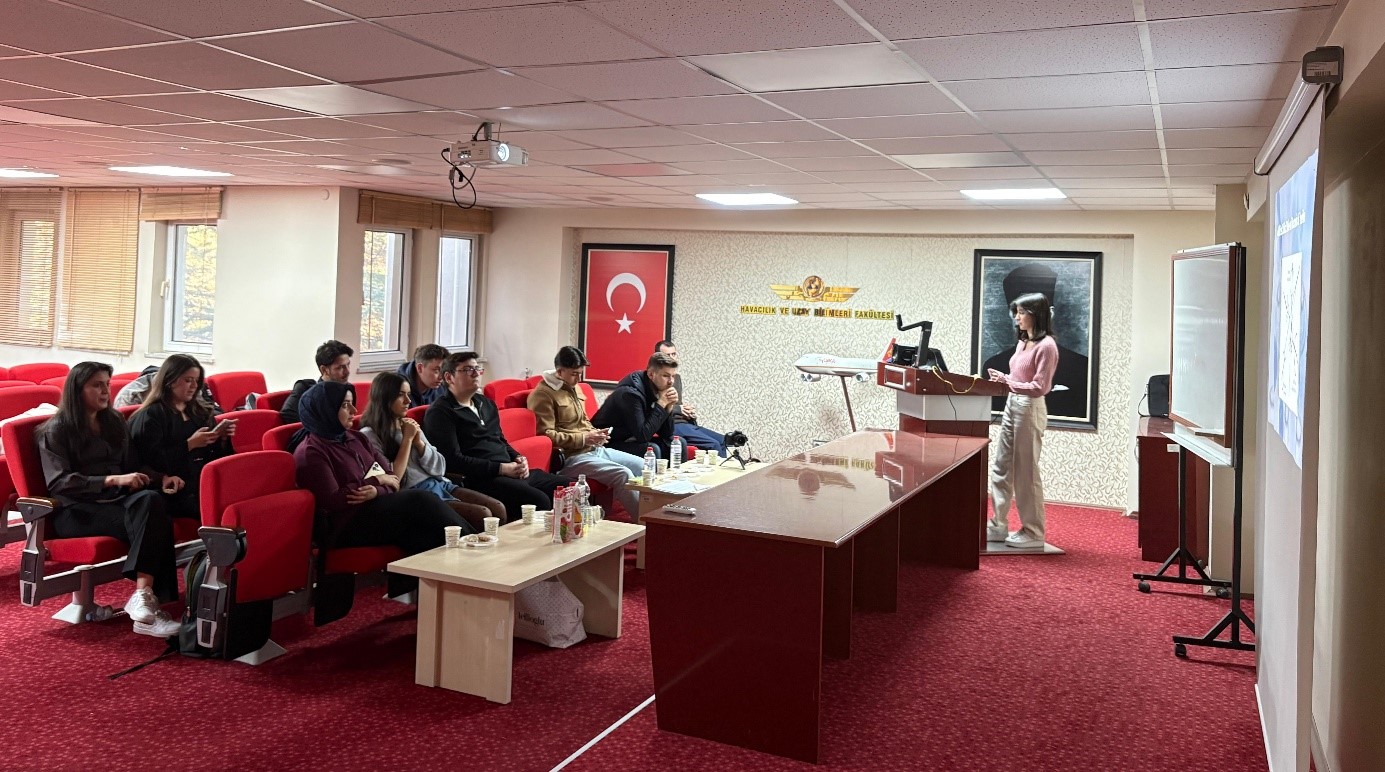
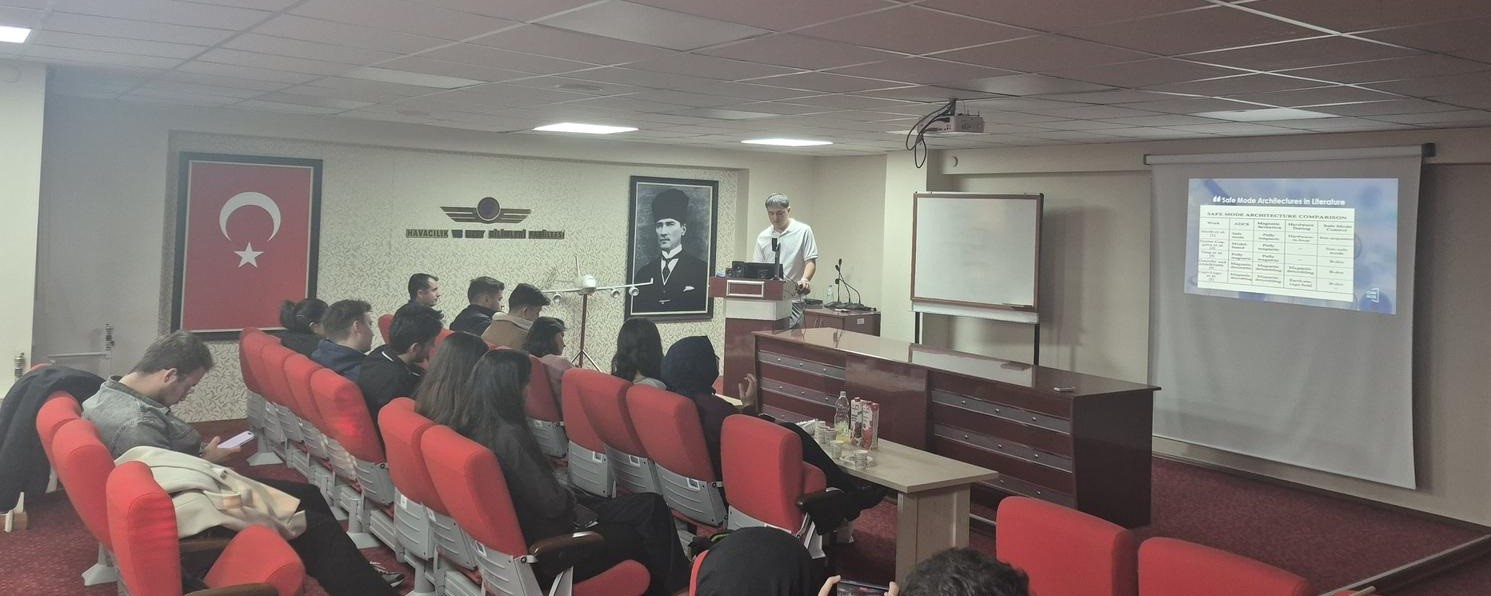
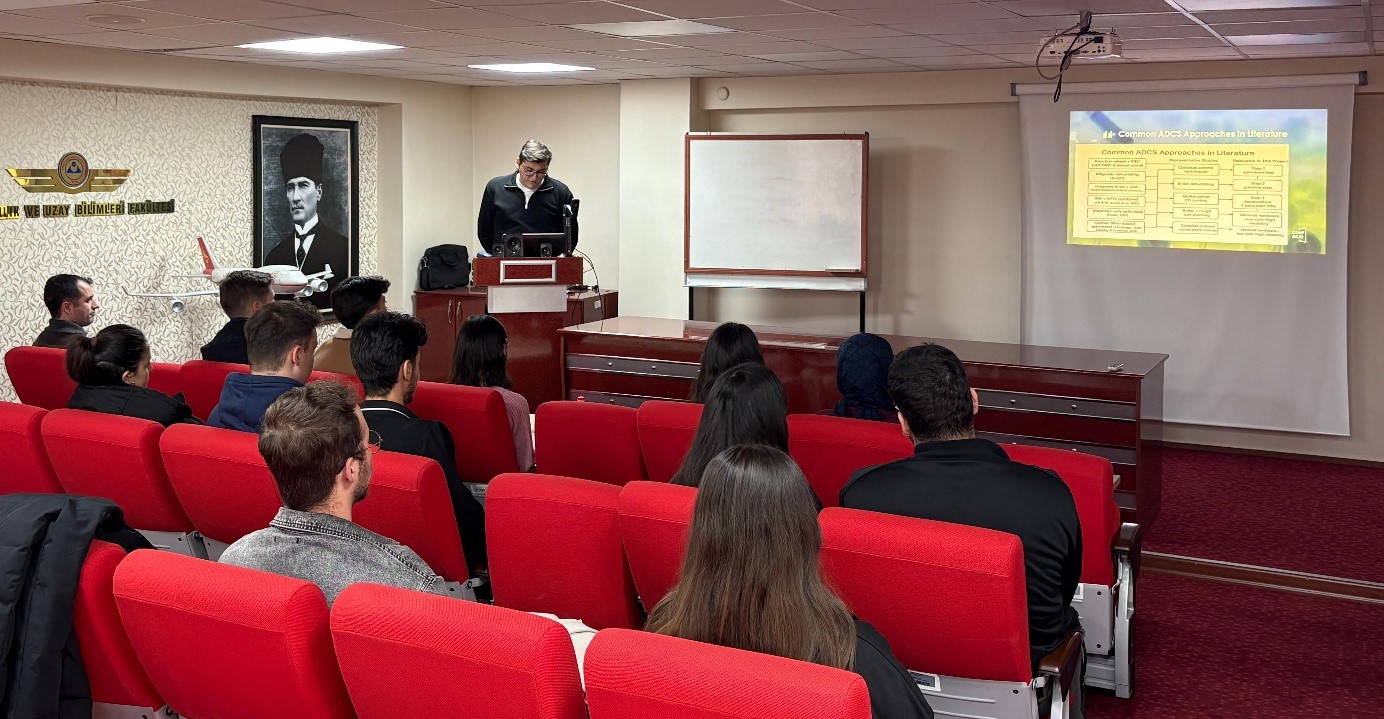
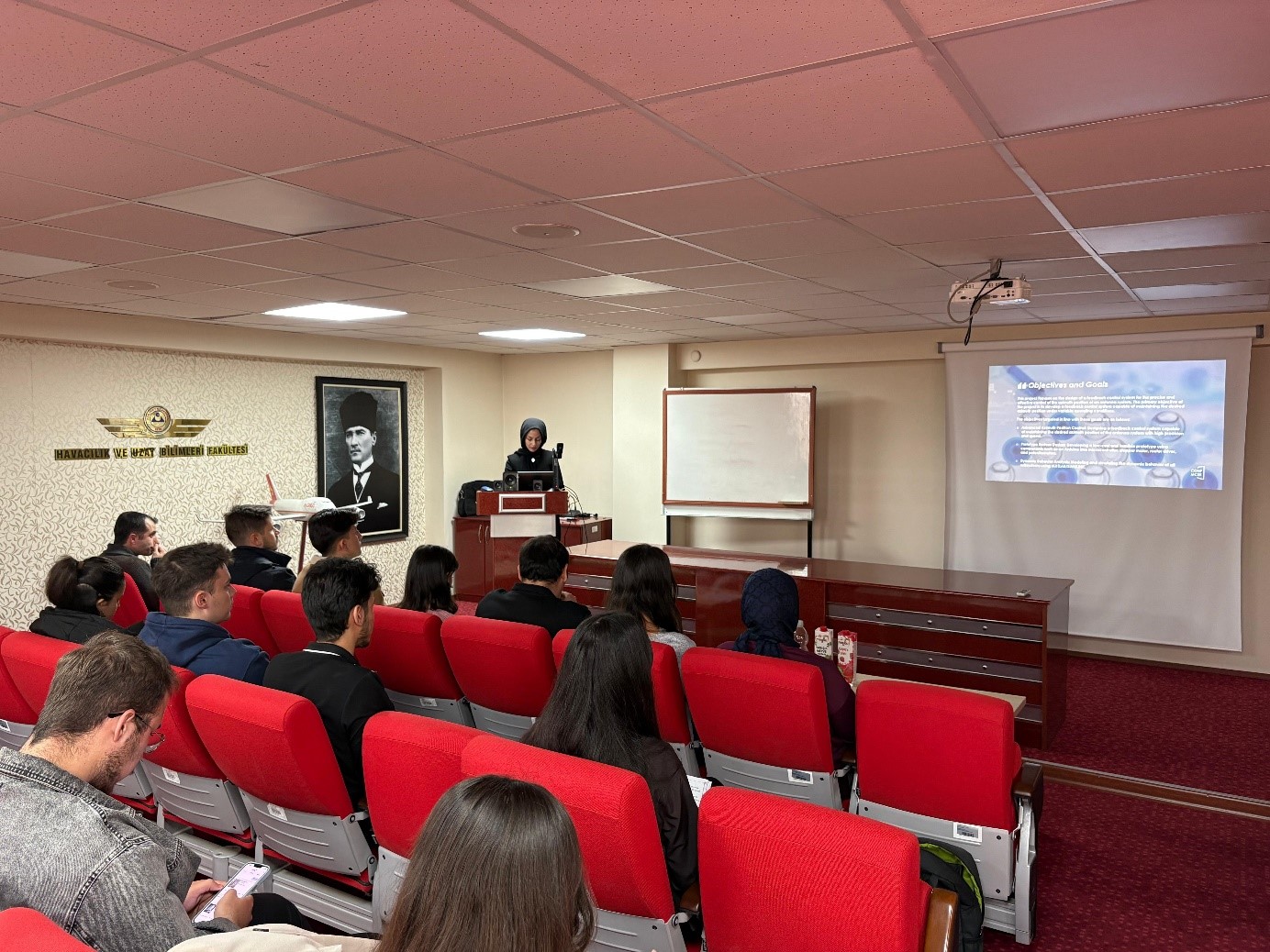
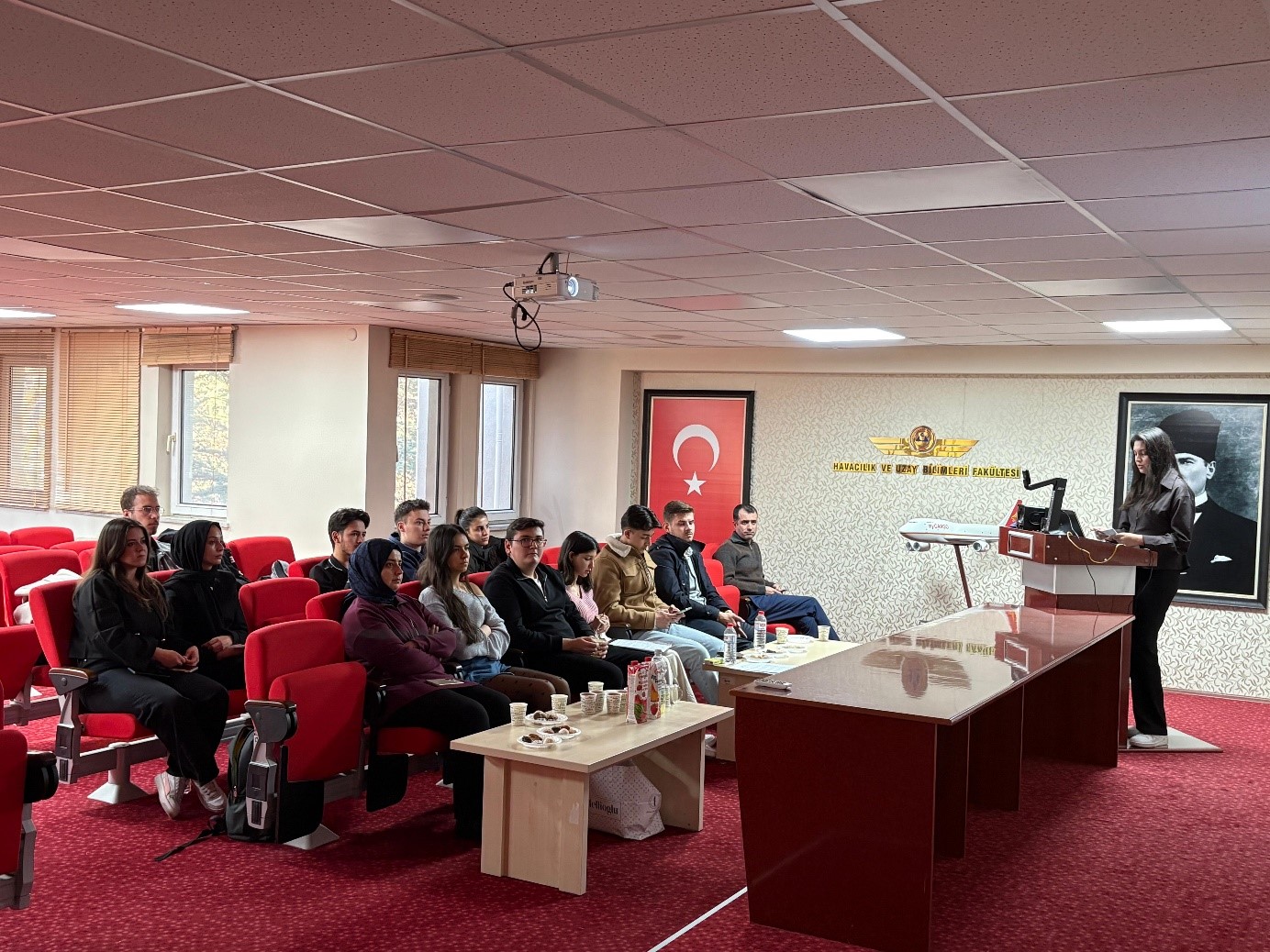
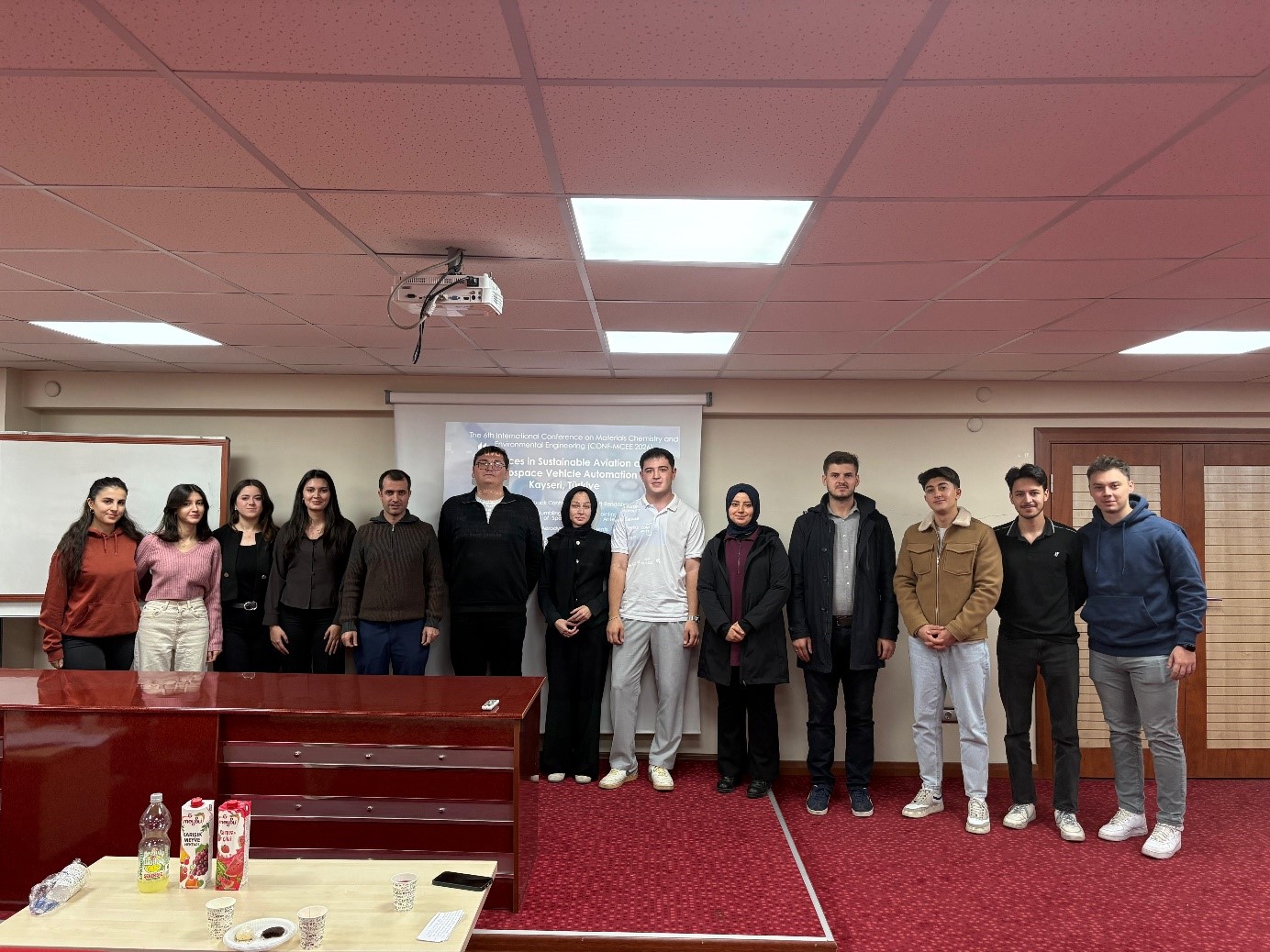
Access to Symposium:CONF-MCEE 2026 Symposium -- Kayseri - YouTube
Ways to Participate
Venue:
Yenidoğan, Turhan Baytop Sokak No:1, 38280 Talas/Kayseri, Türkiye
Attend in Person:
If you want to attend the symposium on-site, please email sympo_kayseri@confmcee.org. The symposium seats are limited. Both contributors and non-contributors who wish to participate in the symposium in person need to apply to the symposium organizers.
VISA:
Welcome to GOV.TRVisitors who are not exempt from entry visa must obtain their visas or schedule an appointment with the Turkish Consular offices via Pre-Application System for Turkish Sticker Visa ( www.visa.gov.tr ). The applicants who meet the requirements will be directed by the Pre-Application System for Turkish Sticker Visa to the e-Visa system ( www.evisa.gov.tr) In those countries where Türkiye does not have a consular representation can also use online scheduling for appointments with the nearest accredited consular office of Türkiye.
- In order to avoid inconveniences that may be caused by delays in processing, it is recommended to apply for visas at least one month in advance before the planned travel.
- The visas submitted to foreigners do not guarantee absolute rights of entry to Türkiye.
- Visa fees are not refundable in cases where applications are rejected
- All applicants are required to have a medical insurance that will be valid during their stay in Türkiye.
- The length of stay provided by visa or visa exemption cannot exceed 90 days within each 180 days. The regulation of 90 days of stay within the last 180 days is binding for all foreigners that will travel to Türkiye.
- It is not possible for foreigners holding two passports to stay in Türkiye for 90 days each with their two different passports within the last 180 days.
- In all types of visa applications, Turkish consular offices may issue visas with a maximum duration of stay of 90 days. The foreigners who wish to stay longer than 90 days in Türkiye, should apply for "Short Term Residence Permit" at the Provincial Directorate of Migration Administration in order to extend their residence.
- The residence permit of the foreigners will be cancelled if they stay outside Türkiye for longer than 120 days in total during the last year.
- For United Nations (UN) Travel Document (Laissez-Passer) holders who have blue UN travel documents, visa exemption with 90 days length of stay within the preceding 180 days may apply during their official visit to Türkiye if they can certify their official assignment. Red UN Travel Document holders, shall be exempt from entry visa and may stay in Türkiye 90 days within the preceding 180 days regardless of their purpose of visit. General visa provisions shall apply for Blue UN travel document holders subject to regulations specified according to their country of origin.
- Visa applications for travels except for touristic or trade purposes (work or study etc.) will need to obtain visa through Turkish Representations in the abroad.
- Regardless of the visa regime applied towards the citizens of a country, the travel document holders of that country need to obtain visa from Turkish missions beforehand.
- Any applicant under the age of 18 must submit official written approvals from both parents. For those applicants who certify that their parents are officially divorced and prove the parent holding their custody as well as for those with one parent deceased, visas may be issued in accordance with their purpose of visit.
- The authorization of processing the residence permit applications submitted by the following persons who enter Türkiye availing visa-free regime and without requirement of obtainment of Student Visas lays with Local Immigration Offices (Provincial Directorates of Migration): Foreigners who arrive in Türkiye upon invitations by universities under Turkish Higher Education Board to study at the associate, undergraduate, graduate, post-graduate, Ph. D levels pursuant to international student exchange programs, cultural programs as well as under EU Education and Youth Programs.
- For foreigners wishing to enter Türkiye via naval ports with touristic purposes, visa-free entry permits may be issued by the local governorates. These permits shall have a maximum 72 hours duration of stay and will be only valid for sightseeing purposes in the vicinity of naval ports where they entered the country. This practice, as it intends to facilitate entry for those visitors subject to visa, does not entitle visitors to visa. Passports of these visitors are not retained by the border authorities; however, visitors are given "Harbor City Entry Permit" which is required to be returned to the authorities upon their exits.
- Any piece of data submitted here may be processed and stored in database accessible to the relevant Turkish authorities in accordance with their respective mandates.
Tourist Visa
- If an invitation letter is submitted for a Touristic Visa application, it must include the inviting person's TR Identity Number, clear identity, the list of invitees, permanent address, contact number, length and purpose of stay and the affinity with the applicant must be stated in the letter. If the inviting side is an organization or a company, tax registration certificate of the organization will be required. In the invitation letter it is also required for the inviting person/authority to pledge for covering victuals and accommodation expenses and for taking their own responsibility. The applicant is required to have sufficient and/or regular remunerations.
